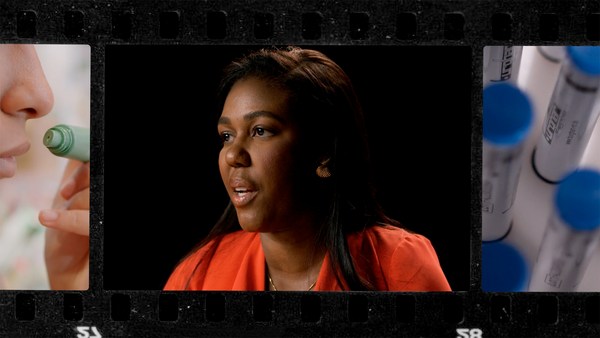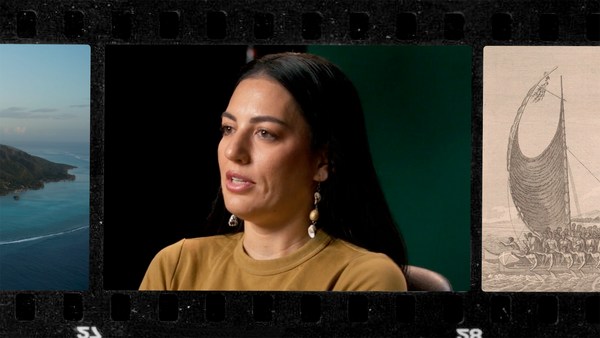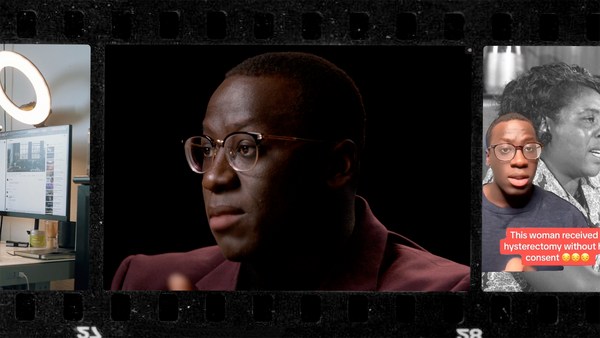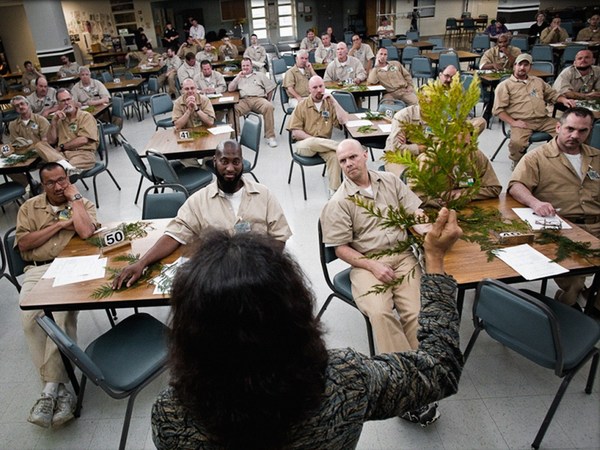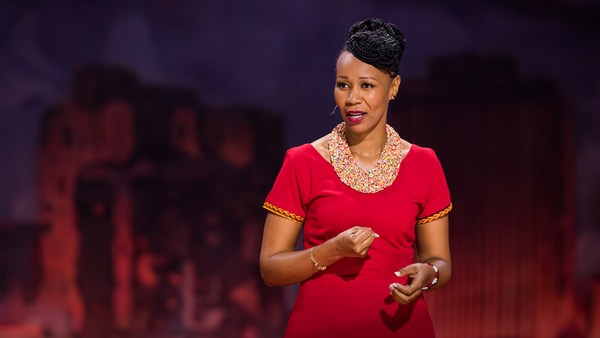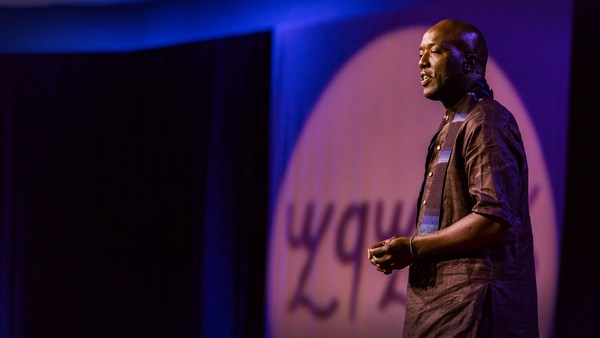What I'm doing and my cofounder Brendan Smith, and I [are] doing, is like, changing the narrative of like, people that you think that might not have the ability or the competency to go out here and fight wildland fires or even have the privilege to do it, can do it at a high level and can be able to be a contributor to society, just given a chance.
You really don't have control when you're in prison. They tell you what to do, when to eat, when to sleep, when you can come out to exercise, to be on the phone with your family. You don’t select your cell, you don’t select your bed. You're getting told 24/7 what to do. You have no control of your destiny in there. It's really demeaning. And it shows, like, how much you want to take that control back.
Being a firefighter in prison definitely gave me the opportunity to take that control back. And it showed me that I can be a hero, right? Because everybody from the outside world kind of look at you as a zero. And it really showed that when I put my mind to something, I can actually do it.
My name is Royal Ramey, and I am the cofounder and the CEO of the Forestry and Fire Recruitment program. The Forestry and Fire Recruitment Program is the intersection between workforce development, criminal justice and the climate crisis. We are about more than just training people who've been in prison to be firefighters. We are about training them to be better people, to see the power they have to make real choices in their lives.
After World War II, California relied heavily on incarcerated people to fight wildland fires. Folks didn't want to do that work, and it was pretty hard. So they wanted to exploit, you know, folks that [were] incarcerated for a lower wage. It saved the state, you know, millions of dollars each year. These facilities are called California Conservation Camps, aka fire camps. These long-standing facilities are where I found myself at the peak of my youth, and it literally changed my life.
In 2012, I was serving time in prison, feeling mentally devastated. At the time, I remember looking at this "Sports Illustrated" cover of John Wall, realizing he was my same age with a bright future ahead of him. Why was he so different than me? How did I get here? I was angry at life, and I felt a bit lost. During my sentence, I had the opportunity to go to fire camp, and I want to be honest with you, I didn't know what I was getting myself into. All I knew was it was an opportunity for me to be more in a dormitory setting, better food, access to weights and being closer to my family. When I actually got on the crew and they gave me this pack and gave me this tool, I'm like, what the heck am I doing, right? The smoke, the heat, you know, hiking up a steep hill with a 45-pound pack on your back, you know. It was just crazy to know that I was going towards a fire where everybody else was running away from it.
It is dangerous. You never know if this might be your last time. But I grew to love it. You know, I grew to love the camaraderie, I grew to love the team cohesion, I grew to love, you know, the challenge. That was when the shift changed for me mentally. It gives you, you know, the mental capacity of just knowing that if challenges come your way, you can easily, you know, overcome them by making a choice. It just really gave me, you know, the power to evaluate myself and what I really wanted out of life and how I wanted to feel like I was doing something that actually was meaningful. When we went to fires, you would see signs of saying, "Thank you, firefighters." And I always felt that, you know, they were talking to me, even though I was in orange, you know.
But once I got released from prison, I always wanted to be a wildland firefighter. I always saw myself in that blue uniform. You know, I always wanted to work for Cal Fire. I was like, you know what? You know, I really want to make it happen. But it soon became clear: prison and public service don’t mix, right? What is the true road map, right, what is the true process of becoming a firefighter with this record? And how to navigate that? How to build up, you know, a nice resume that explains that you [were] in fire camp? How to explain your crime so folks don't judge you because like, most folks like, in the fire service, they're going to know if you've been incarcerated just based off of that resume, based off the color of your skin. I don't want to be judged, right? I want to be judged by the work that I put in and not by, you know, my past. So it took 11 months to figure it out. But you know, it was worth the journey.
And, you know, once we figured it out, my cofounder, Brendan Smith and I, we established the Forestry and Fire Recruitment Program. I wanted to be the Harriet Tubman, you know, the underground railroad, you know, to bring in people that [were] incarcerated in fire camps and give them an opportunity to be successful in their lives. And knowing that it’s generational changing, right, like being able to have a family, career for folks that was told that they couldn't do this based on their record or their past. That was my life's mission from then on.
We helped train and place over 200 people in the fire service through our career training program, but we impacted over 3,000 people that have been formerly and are currently incarcerated in California conservation camps.
Interviewer: Do you ever feel like John Wall when you're out there?
Royal Ramey: (Laughs) Dang. That's deep. I definitely feel like John Wall when I'm out there knowing that you have the ability to inspire people. Especially with my upbringing and the challenges that I had in life. The power of opportunity is real. It's kind of like a phoenix coming out of the ashes. Like, we can make this happen. We can make this work. Just give us a shot, you know. All we need is that opportunity to be successful. People want purpose, want encouragement, want to be influenced, want to serve. If we just get that opportunity, you'll see wonders, people can ... You see the power in choice.
